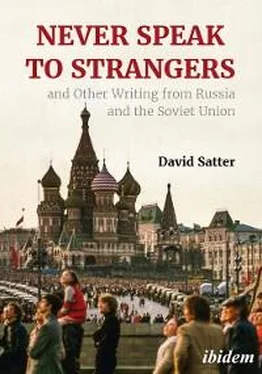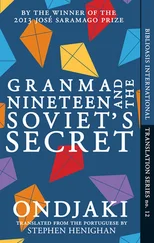With Mr. Aleksei Kosygin, the 75-year-old Prime Minister, seriously ill after a heart attack and Mr. Brezhnev reportedly working only three or four hours a day because of failing health, the Soviet leaders and those who will soon succeed them face a world situation clouded with uncertainty.
Financial Times, Tuesday, April 15, 1980
Caviar sold as herring
200 Soviet Officials Held
The Soviet authorities have arrested more than 200 employees of the Fisheries Ministry, including top officials, in connection with a multimillion dollar caviar swindle which appears to be among the most serious economic crimes in Soviet history.
It is understood Ministry officials made a secret and illegal agreement with a Western firm to send black caviar abroad in sealed 3–5 litre tins marked “smoked, seasoned herring.”
A Western firm which imported the caviar paid the hard currency price for herring. Then it repacked the caviar and sold it at enormous profit, splitting the proceeds with Ministry officials, whose share was deposited in Swiss bank accounts.
Economic crimes involving foreign currency, are punishable by death in the Soviet Union if big enough. It is believed more than 150 people could be liable to capital punishment for their role in the caviar operation which involved the Okean stores in Moscow and was undetected for more than 10 years.
Fisheries Ministry officials asked about the report declined to speak to the Financial Times. However, an official of the Internal Affairs Ministry acknowledged he was working on an investigation involving the Okean stores, but declined to discuss the case.
The Soviet Foreign Ministry also declined to comment and there has been no mention of the case in the press.
The Soviet system, with its uncertain distribution network, shoddy consumer goods and tough currency restrictions, creates rich opportunities for black market operations and illegal economic activity. Some is overlooked by the authorities if it is economically beneficial.
There is a history of large scale operations, although not, it is believed, as complex as the caviar swindle. The insistence on fulfilling the plan creates possibilities for massive concealment, if all staff of an enterprise are willing to falsify results.
What appears unprecedented in the Okean scandal is the alleged involvement of Ministry hierarchy, as opposed to an individual enterprise, and that the payments were in hard currency.
The investigation has been going on since February last year, when Mr. Alexander Ishkov resigned as Fisheries Minister. Also replaced were other high officials, including Mr. Vladimir I. Rytov, a deputy minister, Mr. I. V. Nikonorov and Mr F. P. Zaitsev, two Ministry Secretariat members; and Mr. S. I. Gushchyan, deputy chief of resources and fish products marketing.
Besides the more than 200 people arrested in Moscow, hundreds of people involved in processing, packing and distributing caviar have been held in the provinces, especially Soviet Azerbaijan, where most black caviar originates.
Also apparently involved in the operation were scores of restaurant managers in Moscow, the Black Sea resort of Sochi, and other cities.
Mr. Ishkov has not been arrested, although the state prosecutor’s office has demanded that he be charged. Other major figures are about to go on trial, however, and the investigation continues.
Red caviar from the Soviet Far East and other types of fish delicacies were also reportedly involved, but black caviar was the largest item because of the substantial increase in production from the Caspian Sea in the last 10 or 15 years.
Mr. Alexei Kosygin, the Soviet Prime Minister, is reported to have interceded for Mr. Ishkov—one of the longest-serving Ministers and a member of the Communist Party Central Committee—at the beginning of the investigation last year. It is not known if Mr. Kosygin has involved himself in the case since then.
If Mr. Ishkov were brought to trial, it would be the first time in Soviet history that a Minister had been charged with violation of the criminal code.
In the past, high-ranking officials accused of corruption have been allowed to retire or, in some cases, to retain their posts after a warning.
There is reported to be strong sentiment in favour of bringing Mt Ishkov to trial because of the size of the operation and because top officials of an entire ministry were reportedly implicated.
It is understood the operation might have continued undetected for many more years, but for what one source described as a case of “typical Russian disorganisation.” Some of the mislabelled tins of caviar began to slip into general circulation.
Financial Times, Friday, May 16, 1980
Moscow ‘lacks Afghan strategy’
Fighting a War of Shadows
Almost five months after the Soviet invasion, the war in Afghanistan has become a war of shadows. Western observers believe the Soviet army has not yet developed a strategy for defeating the Afghan rebels, who melt away as Soviet units approach.
There is little information about the fighting, but there have been signs in Moscow that Afghan resistance has been greater than expected, while Soviet military performance has been poorer.
The first indication of problems was the speed with which the Russians replaced the original invasion force, drawn from quarter-strength Central Asian reserve units. The Soviet troops in Afghanistan are now overwhelmingly European, with some reported to have been transferred to Afghanistan from bases in East Germany.
There has been no confirmation of reports of desertions by Central Asian soldiers, but it is thought the Soviets would not have replaced thousands of Asian troops as quickly as they did if they had been satisfied with their discipline or performance.
The Communist Party newspaper Pravda , in a highly unusual acknowledgment of the problems facing Soviet troops and their Afghan Allies, said last Saturday that “the struggle against the bandits in the mountains is no easy matter.”
Pravda said that “just 10 or so men, occupying good vantage points and wellarmed with automatic weapons, machine guns and grenade throwers provided by the United States and China, can hold up the advance of a much superior force.” The narrow ravines prevent the use of tanks, while the echoes of shots make it difficult to determine the source of attacks.
There was no acknowledgement that Soviet troops were taking part in the fighting, and the problems were said to affect only Afghan army units. Soviet forces, however, are now believed to have taken over almost the whole burden of the war against the rebels. According to one report from Indian travellers young Afghans are being rounded up every night in Kabul and forced into the Afghan armed forces’ depleted ranks.
The Soviet armed forces newspaper, Krasnaya Zvezda, has carried almost no information about fighting in Afghanistan, but there have been an increasing number of reports about training exercises on Soviet territory in such specialities as mountain warfare, airborne operations and since the February rioting in Kabul, fighting in cities.
Western military observers believe the Soviet forces in Afghanistan are mechanised and road-bound, and the growing emphasis on training in unconventional warfare stresses the fact that Soviet military training has traditionally presumed front-to-front confrontations of the kind which might be expected in a conflict in Central Europe. The Russians have little experience of anti-guerrilla warfare.
There are now 80,000 Soviet troops in Afghanistan, and about 25,000 in the Soviet Union near the Afghan border. But the long-awaited spring offensive against the guerrillas has not come, and may be postponed indefinitely.
Читать дальше












